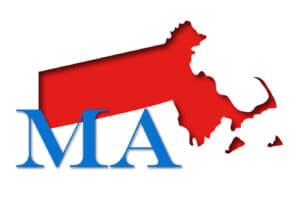Committees from both the House and Senate have sent deficit reduction recommendations to the Joint Select Committee on Deficit Reduction (Super Committee). Several recommendations made by both parties from the House Financial Services would have significant impacts on federal housing program funding.
Both the House Financial Services Committee Democrats and Republicans suggested increasing the guarantee fees charged by Government Sponsored Entities (GSEs), Freddie Mac and Fannie Mae. Guarantee fees are premiums charged to mortgage lenders that sell mortgages to Fannie and Freddie in order to guarantee the repayment of those loans and insure against the risk that borrowers will fail to repay. However, these guarantee fees notoriously do not reflect the underlying risk of default that the GSEs undertake; because of their government backing, Fannie and Freddie generally charge less than private banks and other financial institutions — and therefore pose a great risk to taxpayers when mortgages default or become delinquent. Echoing a proposal by the Obama Administration, Democrats have proposed increasing guarantee fees by 10 basis points which would reduce federal costs by nearly $28 billion over 10 years. However, Republicans have suggested that even raising fees by 10 basis points would not do enough and have suggested raising fees to a level that better reflects the risk that GSEs assume when they guarantee loans, which would be at the discretion of the Federal Housing Finance Agency (FHFA).
House Financial Services Committee Republicans also encouraged the Super Committee to carefully scrutinize the HUD budget for reductions. Recommendations include:
- Eliminating the HOPE VI/Choice Neighborhoods Program entirely;
- Significant cuts to the Community Development Block Grant (CDBG) Program;
- Eliminating the Brownfields Economic Development Initiative (BEDI) because it is seen as a duplicate program to the Brownfields program administered by the Environmental Protection Agency (EPA);
- Eliminating the Sustainable Communities Program entirely;
- Rescinding unobligated Public Housing Capital Fund balances if unexpended after 36 months; and
- Rescinding unobligated Public Housing Operating Fund balances if unexpended after 36 months.
Finally Democrats from the House Financial Services Committee have suggested allowing Ginnie Mae to securitize FHA-HFA risk share loans. This proposal would allow state Housing Finance Agencies to authorize Ginnie Mae to securitize any FHA risk-share loans under the same terms as if it had been insured under the National Housing Act in order to develop and preserve assisted multifamily housing. The proposal would result in additional revenue of approximately $2 million per year.
To view recommendations to the Super Committee from all House and Senate Committees, click here.

